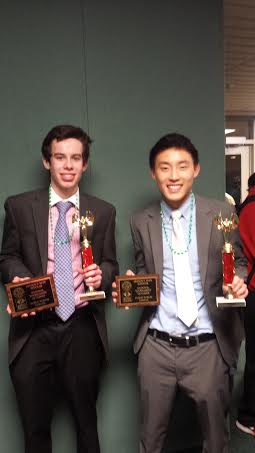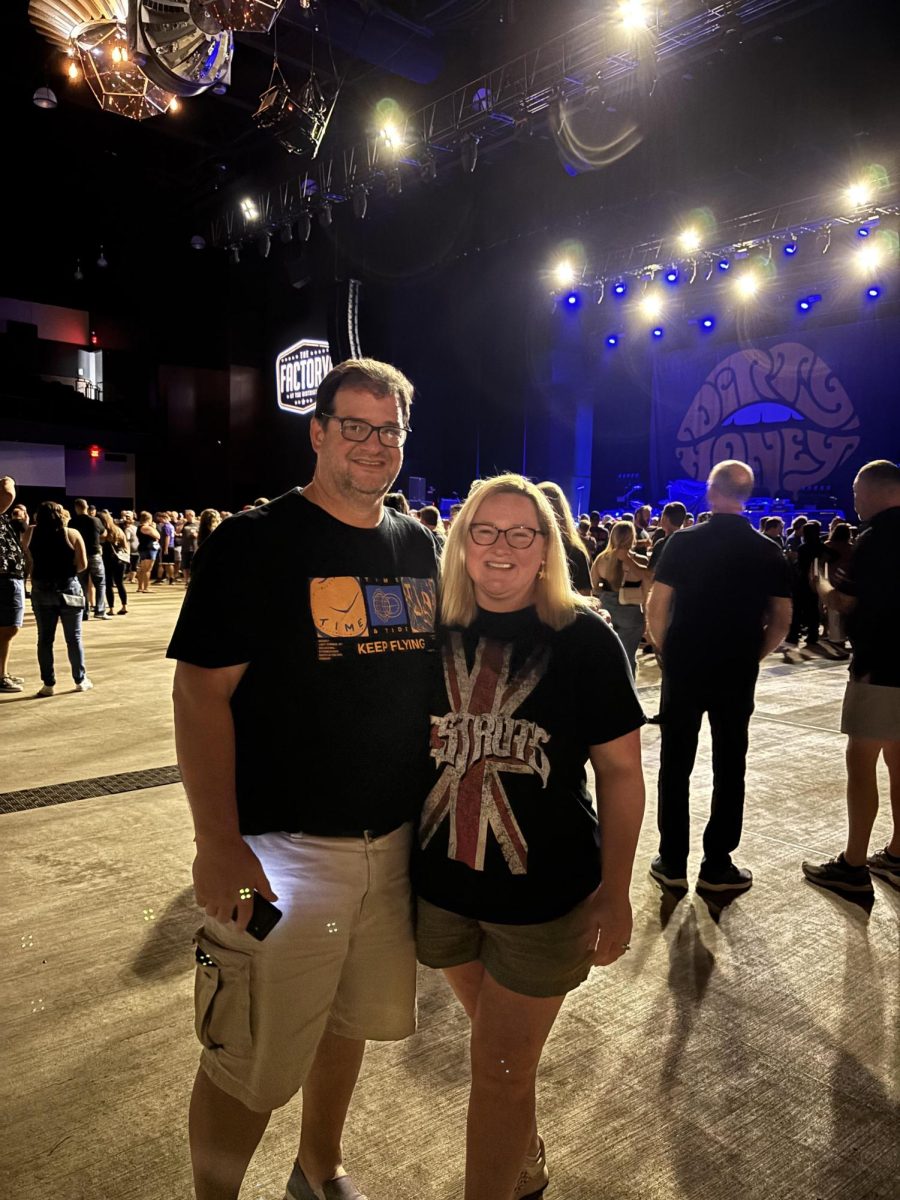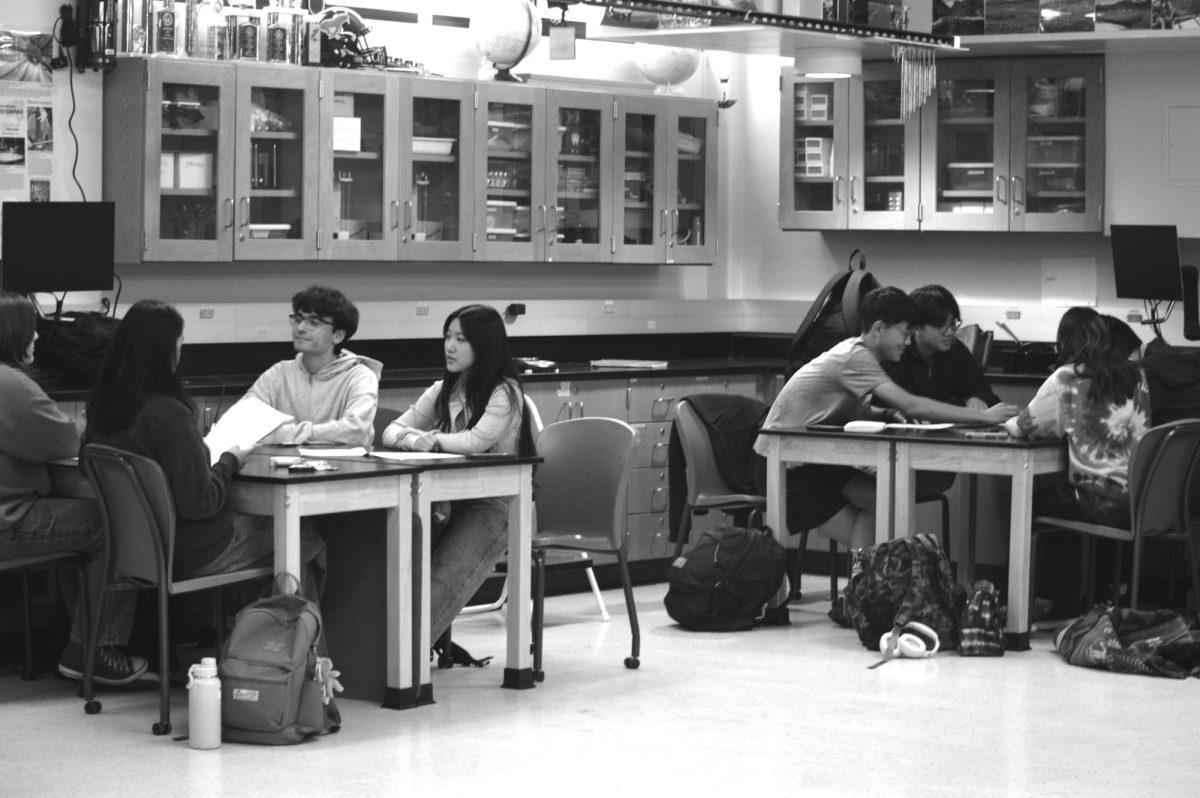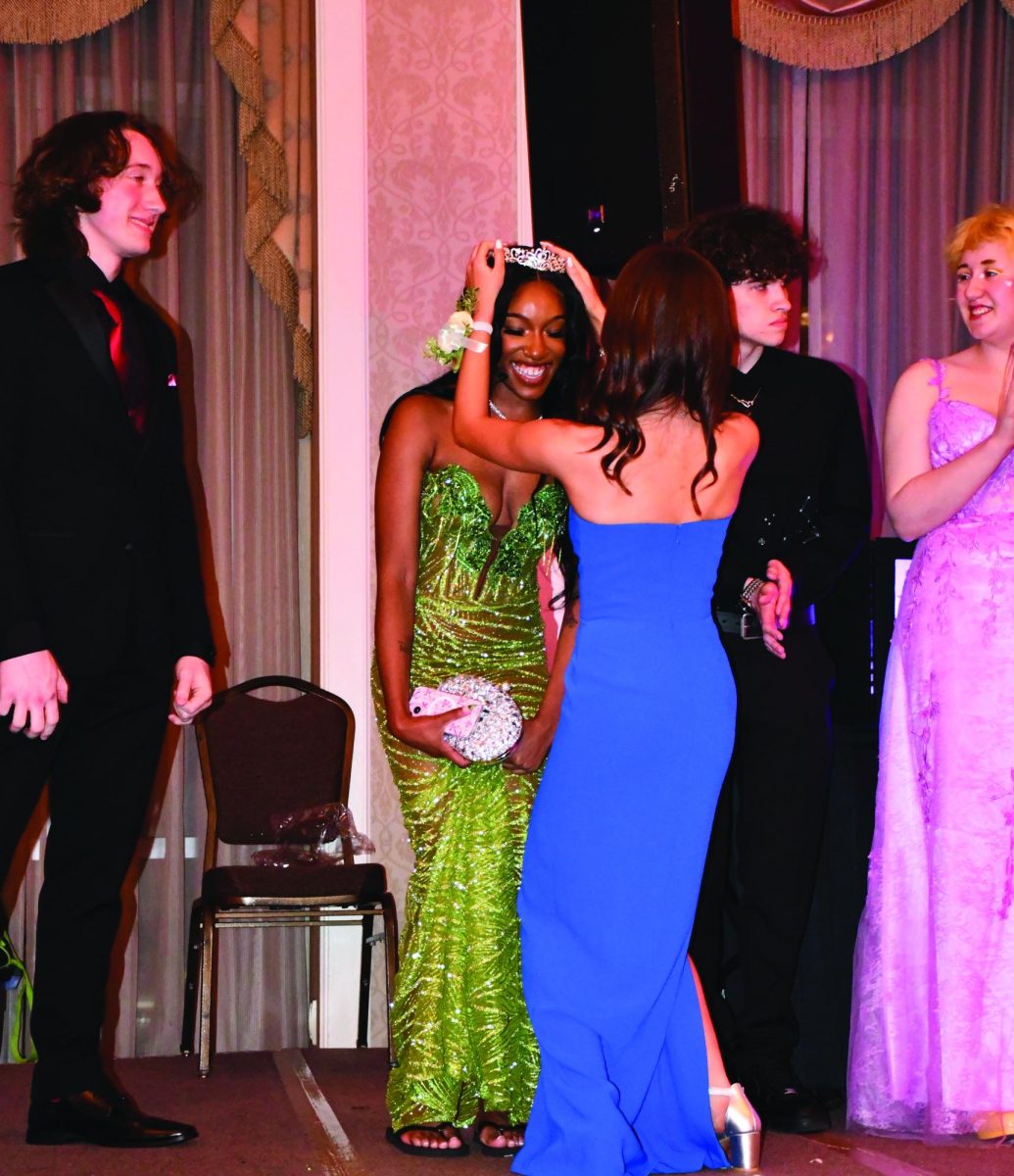
Recently completing a series of qualifying tournaments, the speech and debate team will finish their season with seven state and five national tournament qualifiers.
“The last semester has been extremely solid,” Speech and Debate Coach Mr. Rob Proffitt said. “I knew we had the talent to be in the mix.”
The team placed among the top three teams at the Marquette, Jefferson City, and the National Forensics League tournaments. They participated in four tournaments this semester. To be among the top three, the team must have more combined points overall than other teams. Being in the top three earns the team a sweepstakes trophy.
“For MSHSAA districts, the state qualifiers, they don’t give any sweepstakes,” Proffitt said. “My guess is we would have been one or two there.”
In speech and debate, one can choose an individual event or a partner style event, both of which can score points. Overall team success stems from individual success, and multiple members of the team have been able to contribute during the last few tournaments.
“I do Public Forum which is a two person debate, and we get a new topic every month,” senior Kate Hogan said. “My partner (senior Rakshya Devkota) and I have won two tournaments at the champ division.”
Hogan was one of the seven state qualifiers, along with senior Michael Wang, who will be competing at both the state and national tournaments.
“The first tournament I went 3-1 and didn’t place, but the next three tournaments I placed so this year has gone pretty well,” Wang said. “I have high hopes for state, but nationals I’m not too sure.”
To prepare for tournaments, Proffitt holds practice everyday after school, with one practice a week designated for practicing speech events. A different kind of debate is designated as the focus for every other practice. Members attend on the days that are dedicated to the kinds of speech and debate they are doing, and when there is an upcoming competition, the number of practices increases. Teammates also help each other prepare before competitions.
“The week leading up to a tournament we’ll do practice rounds and just debate our own team to work out holes in cases and figure out what we still need to work on,” Hogan said.
Along with the team coming together to prepare, some get ready individually as well.
“I think about how I would respond to my own case and how I would respond to my attacks,” Wang said.
Proffitt has also discovered a new technique this year to assist his coaching and to benefit members during practice.
“We use a camera a lot to record what we’re doing,” Proffitt said. “I could be in one spot but then have the video camera in a couple of spots and I could play it back and see how things were going.”
According to Proffitt, coaching all three styles of debate and eight kinds of speech can be difficult, but a key strategy is going back to the basics.
“I believe that if you do the fundamental things in debate better than everybody else then you always give yourself a chance to win,” Proffitt said. “It doesn’t matter who you’re debating.”
The last two tournaments that participants didn’t have to qualify for were the MSHSAA districts and the National Forensics League, or NFL, districts. Participants had the chance to qualify for state during the MSHSAA districts and nationals during the NFL districts. Wang said that the atmosphere is different at qualifying tournaments compared to a tournament during the regular season.
“People are a lot more serious and the pressure’s a lot higher,” Wang said. “When I went home (after a tournament), I didn’t know if I had lost my last round and I couldn’t fall asleep.”
Although events are either individual or with just one other person, members of the team say that the support their teammates offer helps them to be successful individually, especially at qualifying tournaments.
“We really identify ourselves as a team because it’s really stressful,” DeMunbrun said. “That’s also where the team aspect comes out and everyone’s there for each other.”
Members of the team find that the “team aspect” is beneficial to their debating along with making the overall experience more enjoyable.
“You have to have a reason to go to tournaments other than winning some shiny piece of plastic,” DeMunbrun said.
Other debaters, along with their coach, mentioned the close-knit team chemistry.
“The winning is nice but the relationships are certainly the best part (of coaching),” Proffitt said.
Looking past this season’s state and national tournaments towards next year, Proffitt is confident despite the team losing seven seniors.
“We always manage to be competitive,” Proffitt said. “Hopefully at the end of the day we’ll qualify for state and qualify for nationals. That’s always the ultimate goal.”




